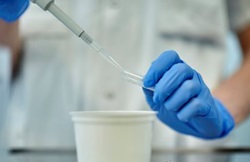The overarching aim of the Center for Functional Genomics and Tissue Plasticity (ATLAS) is to obtain systems-level, mechanistic and cell type-resolved understanding of adipose and hepatic tissue plasticity in response to diet-induced obesity and regression; and to translate this for in-depth understanding of the functional changes in human adipose and hepatic tissues in response to severe obesity and reversal following bariatric surgery.
About ATLAS
The understanding of how specific cell types regulate their properties and contribute to tissue function is the basis for understanding human physiology and disease. Recent advances in high throughput technologies have allowed cellular properties of individual cell types to be studied in an unbiased way at hitherto unprecedented depth. However, a major limitation of these studies is that cells must be isolated and often cultured in order to be studied. This is a significant limitation, because the cellular phenotype depends on instructions from other cells in the tissue niche. Therefore, major current challenges are:
- To record changes in gene expression of individual cell types in their tissue context
- To understand in situ regulation of cell type-specific gene expression and build integrated cell type-resolved models for tissue function and plasticit
- To translate the integrated systems-level information from animal models to the clinical setting
Read more about ATLAS at https://www.sdu.dk/en/atlas
FLASH is partner in ATLAS
The role of FLASH and Sydvestjysk Sygehus in ATLAS
Bariatric surgery constitutes the most efficient treatment to-date against severe obesity. By reducing the effective size of the stomach this surgical procedure leads to a significant decrease in appetite and partial reversal of obesity and hepatic phenotype. However, at present it is unknown how individual cell types respond to and contribute to disease reversal in adipose and hepatic tissues. Similarly, cell type-resolved mechanistic insight into disease progression is lacking.
We will sample liver, and subcutaneous and intra-abdominal adipose tissue biopsies from 100 severely overweight patients undergoing bariatric surgery at Sydvestjysk Sygehus.
Uncovering the effect of bariatric surgery on human liver and adipose tissue.
Biopsies from 100 extensively clinically phenotyped subjects will be obtained during surgery and 6 months post intervention. It is estimated that 90% will display hepatic steatosis, 30-40% will have NASH, and 20-30% will have fibrosis. Dynamics of liver and metabolic markers including fibrosis markers will be determined. As reference we will use publically available RNA-seq data from healthy human liver and subcutaneous and abdominal adipose tissue combined with data from our own RNA-seq on different fat tissue biopsies from lean individuals.
Funder
Danish National Research Foundation
